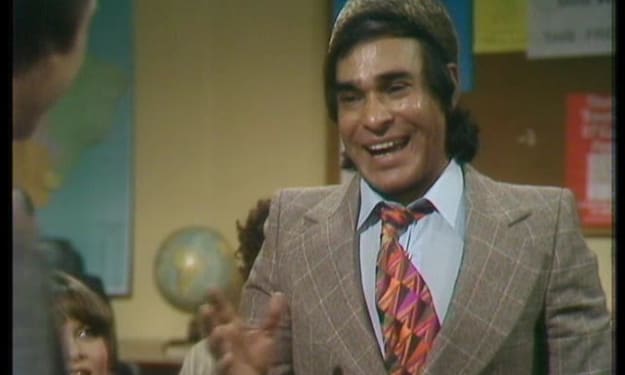15 African Presidents Who Were Assassinated In The Most Dangerous Ways
Numerous leaders throughout African history have met tragic ends,

Numerous leaders throughout African history have met tragic ends, indicating the turbulent character of politics in particular eras and locales. In June 1960, Lumumba's vision came true when the Democratic Republic of the Congo gained independence from Belgium.
As a fervent supporter of pan-Africanism and congales nationalism, he imagined a United Congo free from colonial shackles, where its vast natural resources would benefit its people instead of foreign powers. Lumumba was named the country's first prime minister and faced a number of formidable challenges right away.
The nascent country also lacked an experienced administrative infrastructure due to its rapid departure from Colonial authority. Movements for regional secession, especially the one headed by Mo.
Chombe in the mineral-rich province of Katanga, further worsened The Precarious Political Environment Lumumba's aggressive leadership style and reluctance to bow to Western interests unavoidably caused dispair in the Due to the Cold War environment of the time, superpowers such as the US and the USSR were also very interested in the path that the newly independent Congo would take.
Lumumba's perceived ties to the Soviet bloc also increased Western concerns by September 1960, when the Congo was experiencing political unrest and opposition to Lumumba's government from a number of sources.
He was dismissed by President Joseph Kasavubu, but Lumumba opposed the decision, sparking a power struggle that ended with his arrest in December by Joseph Mutu's supporters, who had carried out a coup with the support of Western governments and business interests. Lumumba had a horrible end on January 17, 1961,
When he was put to death by firing squad in Katanga, a move that was planned Leaders who have the implicit permission of Lumumba's killer, the US Central Intelligence Agency The murder of a leader with immense promise and a vision for a united and wealthy Congo continues to be one of the most tragic political killings in Africa.
Movements for justice, sovereignty, and dignity are still motivated by his legacy throughout the continent. Above second place Sylvenus Olympia Togo Sylvanus Olympia, a highly educated man with a vision for a prosperous and independent Togo, was born on September 6, 1902, in LOM, which was then a part of the German Colony of Togoland.
Olympia is regarded as a monumental figure in Togo's march to independence. After completing his education in London and working briefly in the US, Togo Olympia returned to his own country with the goal of releasing his by secessionists and Belgian officers.
homeland from colonial rule's yoke Olympia's dynamic manner and persuasive oratory immediately elevated him to the forefront of Togo's independence movement, as he effectively mobilized the populace in favor of putting an end to French colonial control. Nevertheless, the dawn of independence brought with it a new set of difficulties as President Olympia faced the enormous task of uniting a nation divided by Colonial legacies and creating a strong economy from the ground up.
His approach to nation building, which leaned toward centralized control, resulted in the marginalization of certain segments of the Togo military, particularly those who had served in the French colonial army by early 1963. His efforts paid off when Togo gained independence in 1960 and he became the country's first president.
Rumblings The atmosphere was ripe for instability as a result of growing unrest, economic hardships, and the emergence of marginalized military factions. On January 13, 1963, these tensions reached a tragic peak in the early hours of a military coup. Olympia attempted to seek refuge in the US Embassy but was turned away; he was later apprehended and killed outside the building, becoming the first African head of state to be overthrown in a coup.
Olympia's assassination was a landmark event in African politics because it established a precedent for military interventions in African States—a practice that would regrettably recur across the continent in the years to come. Olympia is remembered today for his determination to see Togo remain independent and realize his dream of a successful, united nation number three narta tombal Bay Born on June 15, 1918, in the southern part of Chad, Chad Natar Bay became a beacon of hope and transformation for a country.
As Chad determination to see Togo remain independent and realize his dream of a successful, united nation number three narta tombal Bay Born on June 15, 1918, in the southern part of Chad, Chad Natar Bay became a beacon of hope and transformation for a country. As Chad began its journey towards independence from France, he was motivated to break free from the bonds of colonial dominance.
Having been educated in missionary schools at first, he later received training as a teacher, which helped him to establish a solid understanding of grassroots issues and the enormous transformative potential of education. Tom Bal's leadership abilities quickly brought him to prominence. He rose to prominence within the Chadian Progressive Party (PPT), which was instrumental in guiding the nation toward sovereignty. But in the mid-1990s, fortune began to turn in Congo's favor.
Supported by Rwanda and Uganda, he launched a rebellion against Mobutu, whose three decades of rule had left the country in political and economic ruin. In a swift and decisive campaign, Kabila's forces advanced across the nation, and by May 1997, Mobutu's reign came to an end. Kabila took over for a nation in desperate need of guidance and healing, but the exhilaration of the Revolution quickly gave way to the challenges of government governance.
Once heralded as the DRC's savior, Kabila has come under fire for his autocratic tendencies and alleged violations of human rights. The promised democracy has proven elusive, and Kabila's relationships with National Liberation Front (Fln): As the primary rebel movement against French rule, budf played a crucial role in Algeria's struggle for independence. His dedication to the cause led to his arrest and imprisonment by the French in the 1950s, but after the country's hard-won independence in 1962, internal conflicts within the Fln caused bdf's sidelining and eventual exile to Morocco.
For nearly three decades, Budf lived away from his homeland, but in 1992, the country's political landscape underwent seismic changes. Tensions increased between the government and Islamist groups, particularly after the cancellation of elections that the Islamic Salvation Front was set to win in this atmosphere of crisis. Budf was recalled.






Comments
There are no comments for this story
Be the first to respond and start the conversation.